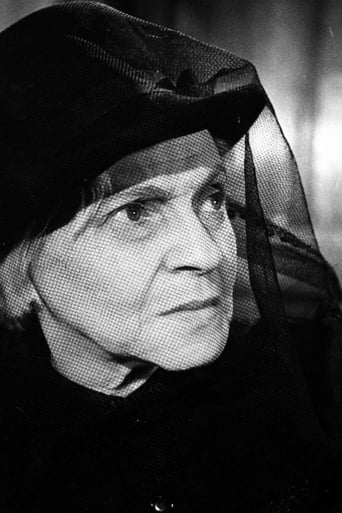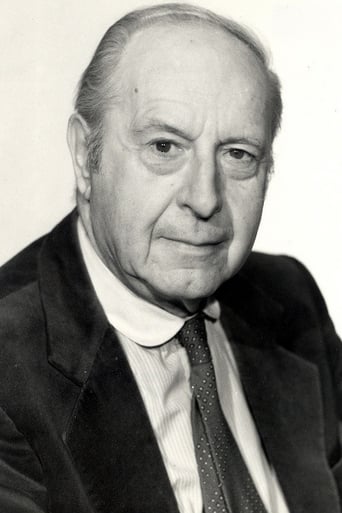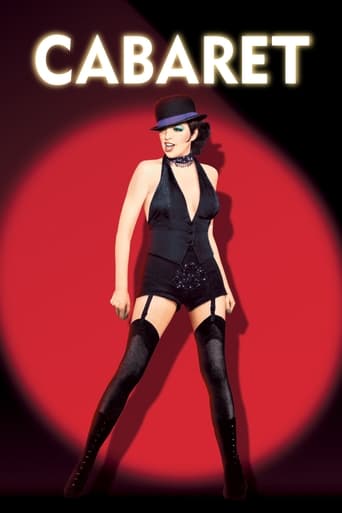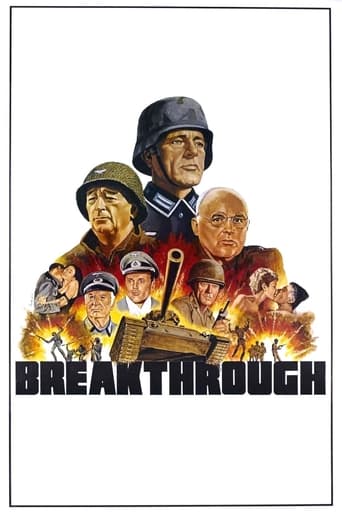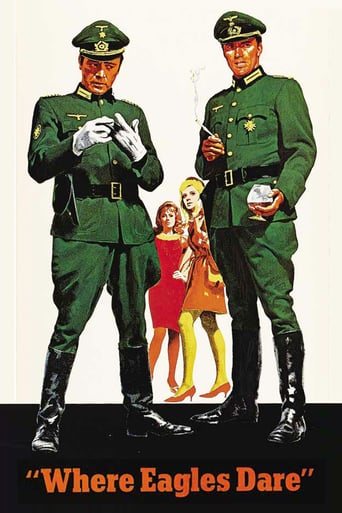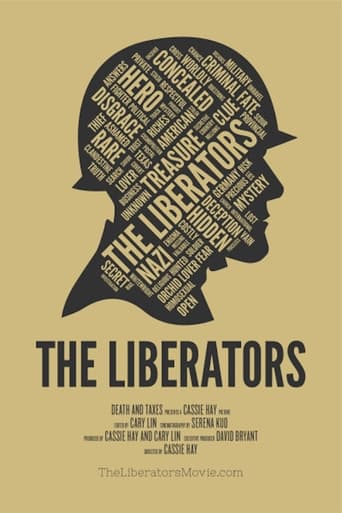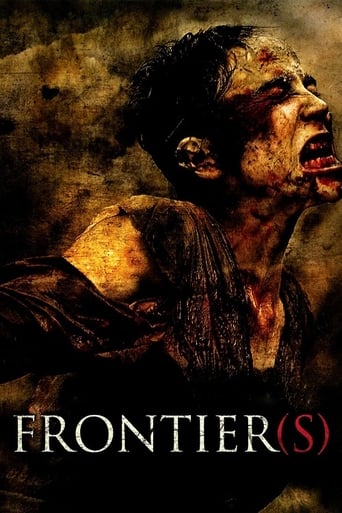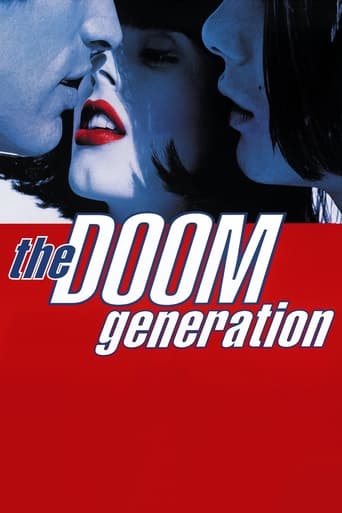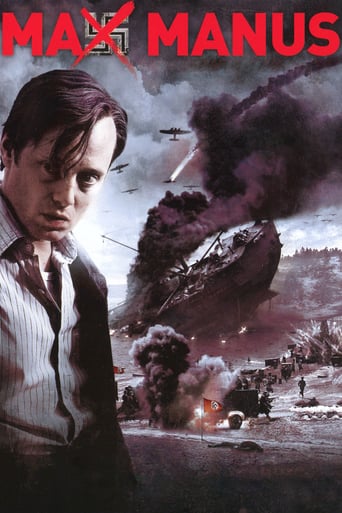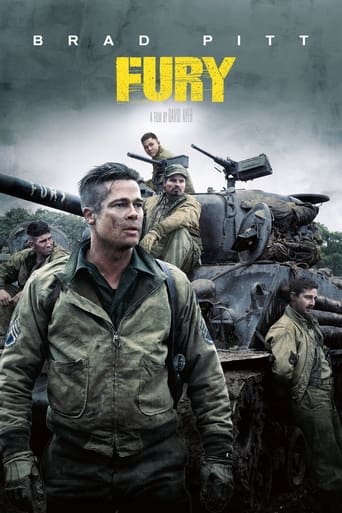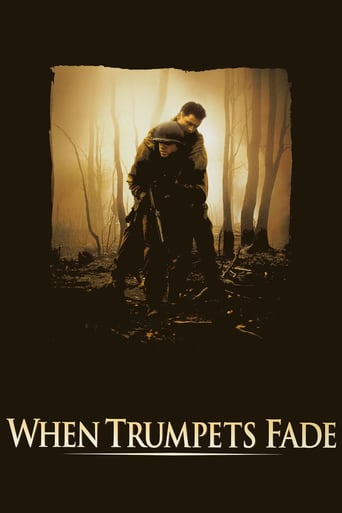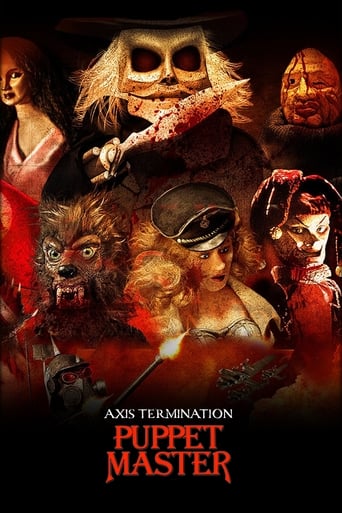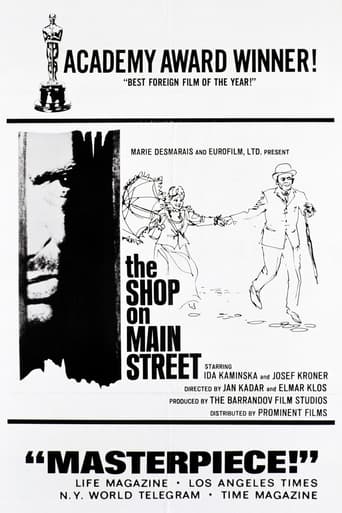
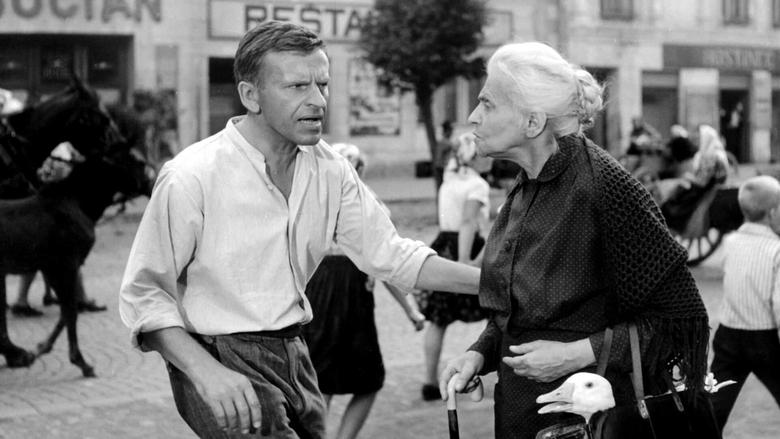
The Shop on Main Street (1965)
In a small town in Nazi-occupied Slovakia during World War II, decent but timid carpenter Tono is named "Aryan comptroller" of a button store owned by an old Jewish widow, Rozalie. Since the post comes with a salary and standing in the town's corrupt hierarchy, Tono wrestles with greed and guilt as he and Rozalie gradually befriend each other. When the authorities order all Jews in town to be rounded up, Tono faces a moral dilemma unlike any he's known before.
Watch Trailer
Cast


Similar titles
Reviews
This film from the former Czechoslovakia is one I found in the book of 1001 Movies You Must See Before You Die, I had no idea what to expect, only clue was the easy to work out title, but it was rated well. Basically set during World War II, mild-mannered Slovak carpenter Anton "Tóno" Brtko (Jozef Kroner) is offered the opportunity to take over the shop for sewing notions for elderly Jewish woman Rozália Lautmannová (Oscar and Golden Globe nominated Ida Kamińska), who due to being partially is unaware there is a war going on. The shop takeover is part of the enactment of an Aryanization regulation in the town, Tóno tries to explain to the oblivious Mrs. Lautmannová what is going on, he will supervisor, Slovak store owner Imrich Kuchár (Martin Hollý, Sr.) explains to him that the store is less than profitable, Lautmannová relies on donations. The amiable Brtko is offered a weekly payment by the Jewish community if he does not give up the store, he accepts, and lets the old woman think he is her nephew who has come to help. The relationship between Tóno and Mrs. Lautmannová, until the entire Jewish community is rounded up by the authorities for transport, Tóno is conflicted whether to hand them the old woman or hide her. Mrs. Lautmannová finally becomes aware of the massacre and persecution of people who share her religious beliefs, she panics, to try and silence her Tóno accidentally kills her, realising and devastated by what he has done, in the end he hangs himself. Also starring Frantisek Zvarík as Markus Kolkocký and Hana Slivková as Evelyna Brtková. Kaminska is fantastic as the elderly Jewish woman with the little shop full of string and buttons, and Kroner is splendid as the humble carpenter, their relationship is filled with comedic moments, but it being in the war there were bound to be tragic scenes as well, I will admit I lost my way a little in places, but overall it is a worthwhile Second World War drama. It won the Oscar for Best Foreign Language Film. Good!
'The Shop on Main Street' was co-directed by Ján Kadár and Elmar Klos. Klos was a Czeck and Kadár, a Slovak born in Hungary. The setting of the film is a small town in Slovakia during the early part of World War II. Slovakia (which became The First Slovak Republic) was the only country along with Germany and the Soviet Union to invade Poland when the war started. Slovakia was forced to declare independence by Germany and a puppet regime was set up with Jozef Tiso as president and Vojtech Tuka, Prime Minister. Tuka was far more radical than Tiso and headed the pro-Nazi wing of the Slovak People's Party. The wing was supported by the Hlinka Guard, who sported the double cross symbol on their uniforms. In the film, a giant tower featuring the double cross is built in the center of town. The deportation of the Jews (a key element of the plot) was facilitated by Tuka. Approximately 57,000 Jews were deported up until 1942, when various factions in Slovakia got wind that the Jews were not being deported to labor camps, but rather were being exterminated. The deportations stopped for about two years when Slovakia insisted that further deportations would affect their economy in a deleterious way. In 1944, a national insurrection against the Nazis (the Slovak National Uprising) led to a Nazi take-over of the country. Deportations of Jews began again and even as late as March 1945, large numbers of Jews were murdered.'The Shop on Main Street' primarily addresses the issue of the ordinary man's response to living in a society under the yoke of fascist oppression. Our protagonist is Tóno Brtko, an often unemployed carpenter who lives in a modest home with his henpecking wife, Evelyna. Tóno's brother-in-law, Marku Kolkotský,is commander of the Fascist guards. In an excellent scene where we really get to meet the characters for the first time, Kolkotský and his wife pay his in-laws a visit at their house and they all get drunk. Tóno is angry at his brother-in-law for not doing more for him given his position as the town commander. Kolkotský surprises Tóno when he hands him a document, appointing him 'Aryan' manager of a Jewish button store (hence the shop on Main Street). You'll note that at this point, Tóno has no guilt feelings about making a deal with the devil, accepting the confiscation of the store (and his position as manager), as a fait accompli.When he arrives at the store, he finds it owned and operated by an elderly Jewish widow, Mrs. Lautmannová , who's hard of hearing and slightly senile. Kuchár, an accountant and righteous Gentile resistance fighter, reveals that Lautmannová primarily relies on donations from the Jewish community and most of the stock in the store is depleted. Nonetheless, Tóno agrees to an arrangement that if he acts as the 'Aryan manager', the Jewish community will pay him to look after Mrs. Lautmannová and make sure no harm comes to her. Gradually, Tóno takes a liking to Mrs. Lautmannová and when he learns that the Jewish community is about to be deported, he becomes a righteous Gentile and is determined to save her. Tóno becomes so militant for the just cause of sticking up for the Jews, that he ends up beating his bigoted wife, who is convinced that Mrs. Lautmannová is hoarding money. Unlike the famed Oskar Schindler and the Polish sewer worker, Socha, in the film 'In Darkness', Tóno is in a position where he can only attempt to save one Jew. Unfortunately, it soon becomes apparent to both Tóno (and the audience) that he has no chance of success in saving the elderly woman, especially after Kuchár is arrested for helping the Jewish community and dragged through the streets with a sign posted on his chest, 'Friend of the Jews', soon to meet a horrible, excruciating death.Directors Kadár and Klos are on solid ground by not glossing over the fact that a certain segment of Slovakian society was wickedly anti-semitic and actively collaborated with the Nazis in the deportation of the Jews. In fact, in 'The Shop on Main Street', you never see any Germans--the deportations are carried out by local Nazi supporters. Even those 'ordinary' people such as Tóno's wife, are not immune from basic prejudices as evidenced by her diatribe against Mrs. Lautmannová. Before his epiphany, Tóno is also unashamed, taking money from the Jewish community while participating in the illegal confiscation of Mrs. Lautmannová's shop.Despite Kadár and Klos' admirable chronicling of the dark side of a segment of the Slovakian people, they are still determined (as other filmmakers who come from countries who collaborated with the Nazis) to show that there were still good people amongst the bad apples. Kuchár is one of the good ones and Tóno becomes one. Unlike Schindler, Tóno is trapped and is forced to make a 'Sophie's Choice-like' decision. Shall he push Mrs. Lautmannová out the door into the waiting hands of the Fascist Guards? Or into a closet in order to hide her? SUPER SPOILERS AHEAD. Unfortunately, the 'push' is an ambivalent one--he's angry with her because her cause is hopeless and she should at least realize it but somehow he also is trying to think of a way he can save her. He ends up pushing her too hard into the closet and the ensuing fall causes her death.Are Kadár and Klos trying to assuage their own guilt by turning Tóno into a martyr? The message here is that not all Slovakians were bad during that time. But I think it would have been more realistic if Tóno lived with his guilt over Mrs. Lautmannová's death. His ambivalent actions, where at one point he's thinking about saving his own skin, were normal. By having him commit suicide, Tóno adopts a Christ-like mantle, unrepresentative of the average Slovakian's response to the harrowing reality of the times they were living in.
In 1942, in a small town in Czechoslovakia, the poor carpenter Tony Brtko (Jozef Króner) is assigned "Aryanizator" of a small shop on the main street by his fascist brother-in-law Mark Kolkotsky (Frantisek Zvarík). His greedy wife Evelyn (Hana Slivková) is seduced with the promise of fortune, but Tony finds that the store owned by the deaf and senile seventy year-old widow Rozalie Lautmann (Ida Kaminska) is bankrupted and the old lady is financially supported by the Jewish community that promises a salary to him to help her. Tony befriends Ms, Lautmann and helps her in the store and repairs her furniture, and lures his wife with his salary. When the Jews are expelled from the town by the fascist, Tony decides to help the old lady. "Obchod na Korze" is one of those movies that make you laugh and cry. The tragic-comic and heartbreaking story of a flawed Aryan man and a senile Jewish widow is very well developed and the viewer is able to understand the despair of the lead character absolutely powerless against the powers that be, in a village where everybody knows each other. His state of mind in the end with the whole situation associated to the booze drives him to his ultimate decision. My vote is eight. Title (Brazil): "A Pequena Loja da Rua Principal" ("The Little Shop of the Main Street")
"Ich Tanze Mit Dir In Den Himmel" has been a famous German Schlager of the 50ies. The dance has here not a choreographic but a metaphysical function: it bridges between life and death, expressing either the resolved joy of having been able to let back the heaviness of earth, or, preferably, as disguising means in front of the nothing sensed as Horror Vacui. In order to show the relevance of this observation for "Obchod Na Korze" (1965, directed by Jan Kadar and honored by a Oscar for Best Foreign Film of the Year), I have to disclose some details that some readers may interpret as spoilers.Slovakia, Rosenau/Rozsnyo (where Peter Lorre alias Laszlo Löwenstein was born), one thousand years Hungarian, since 1920 part of the newly found Cseh-Slowak Republic, 1942. Late like almost everywhere in Eastern Europe, the Nazis invade the Pre-Carpathian lands and hurry to evacuate all Jews in order to transport them to Russia. But here is on Main Street the little Shop of the widow Lautmann, 78 years old, alone, practically without income, profiting from the benefits of the Jewish community. And there is, a little distant, on his farm, the carpenter Brtko who is under pressure of his beautiful, but stupid and in the end brutal wife - and also of the husband of her sister, one of those who have read very early the signs of time and joined the National Socialist Party.Kolchozky is one of those who is charge for the extirpation of Jewishness in Rosenau. And he charges his slightly deficient brother-in-law Brtko as "Arizator" ("Arianizator"), responsible for taking over the little shop of Panie Lautmannova. However, Brtko is a man with his heart on the right spot. Pushed aside himself by society, he feels pity with the old and deaf Mrs. Lautmann as tries everything to save her life. However, one night, when the evacuation of the Jews has become ready, he looses his nerves, when the alphabet of the called-up names approaches the letter "L". In an overreaction, he forces the old woman into a cabinet and wants to deliver himself to the Nazis in order to save the old woman's life, although what await himself is death.But in the same moment, when he opens the door to deliver himself, the troupe starts to march, Mrs. Lautmann has simply been forgotten, and all his panic was in vain. When he hurries back to open the door of the cabinet, he find that Mrs. Lautmann is death, fallen over some furniture in her cabinet, possibly caused by his hasty hiding of her. Becoming aware of what he has done, he sees a hook in the roof, fetches a rope and hangs himself up. The music that starts Stante Pede, leads back to an earlier scene where Mrs. Lautmann is grieving about her deceased husband. The camera does not show the dead body of Brtko, but instead of that, the film becomes purposely overexposed, the door of the shop opens by itself, and in glorious sways out to the street are floating the rejuvenated Rozalia Lautmannova and Tona Brtko, dancing into the light. - All those who have had the pleasure to see R.W. Fassbinder's "Despair. A Trip into the Light" (1978), know: This is not the light of heaven, this is the light of darkness, not the brightly shining Pleroma (to say it in terms of Gnosis), but the light of the Kenoma.


